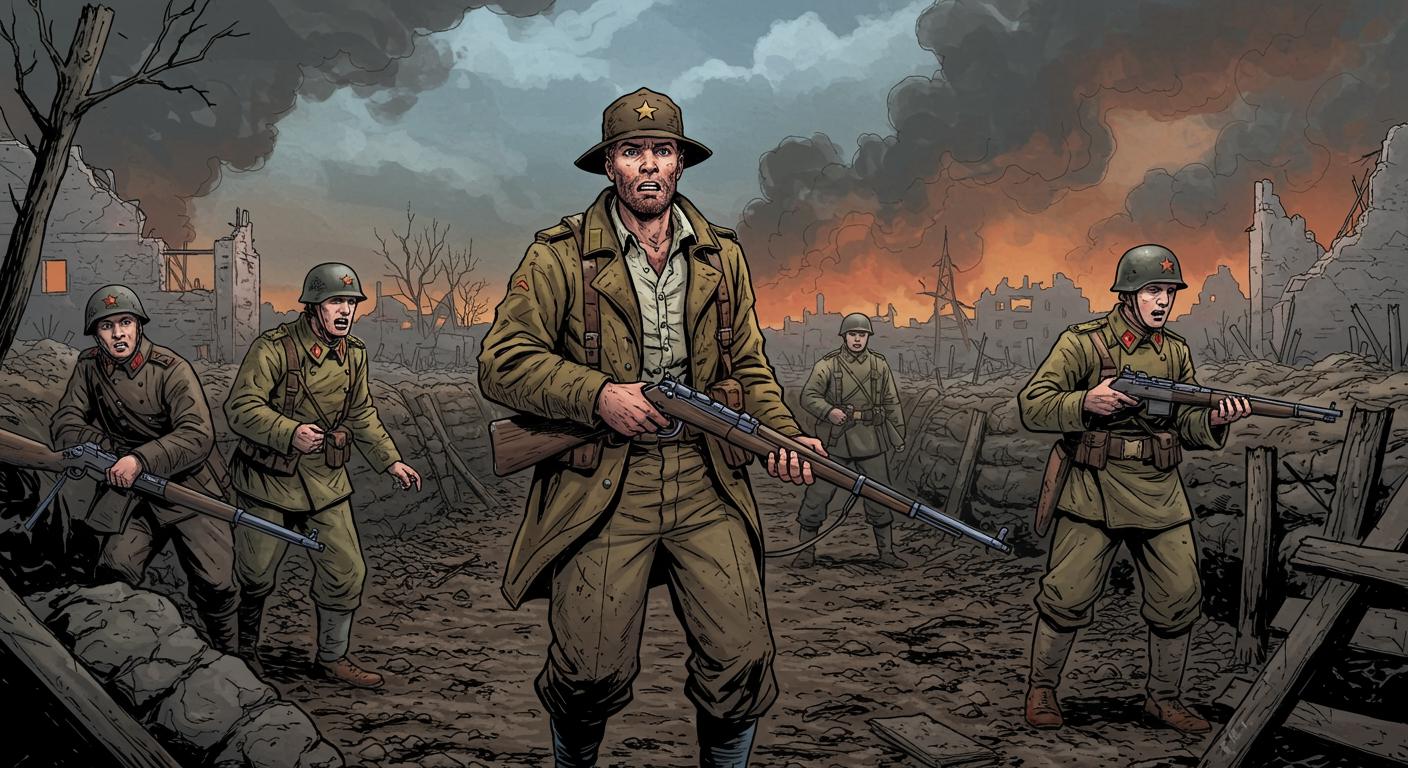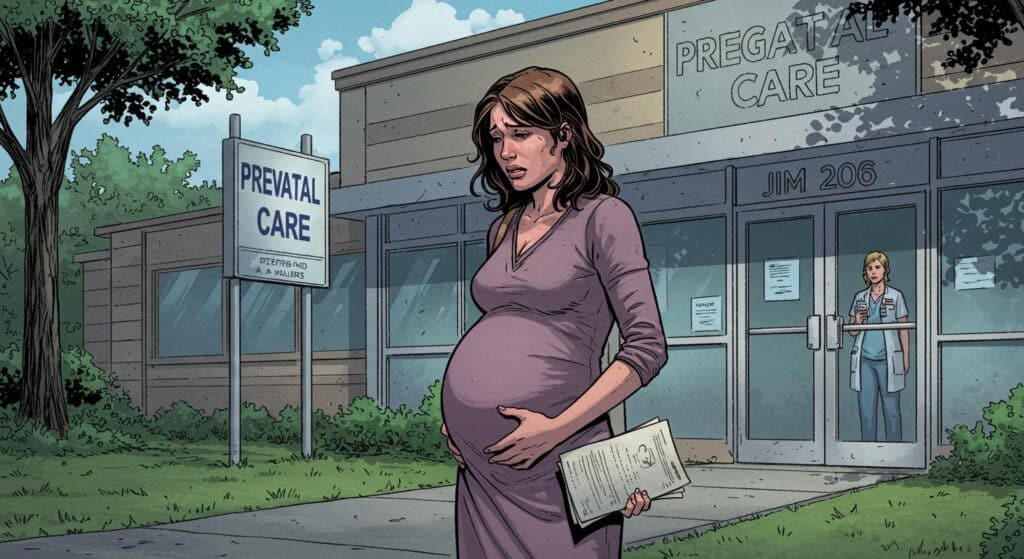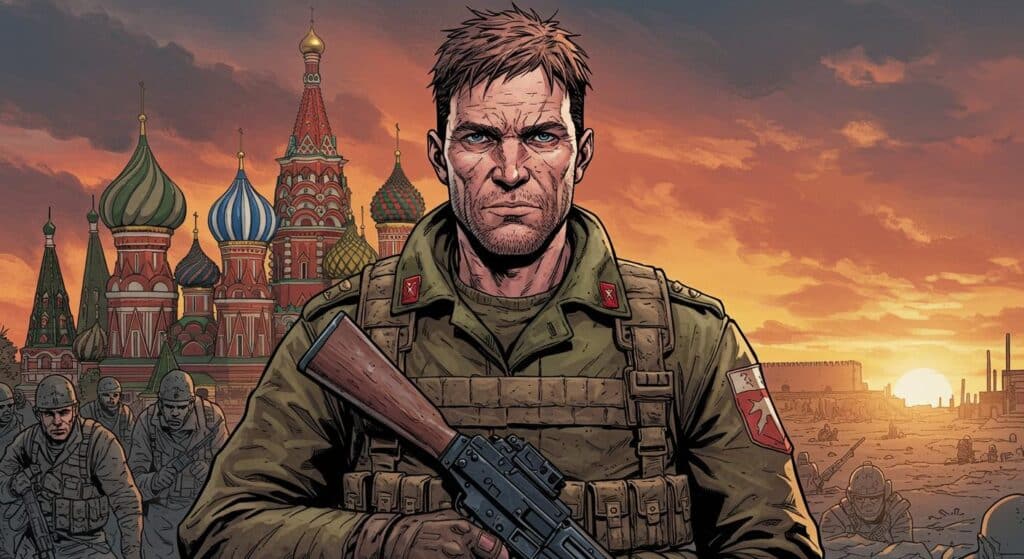Sometimes, you come across a story that reads like it’s been plucked from a particularly farsighted satirical novel, if only the punchlines weren’t quite so grim. A recent migration tale, reported in Euromaidan Press, follows Texas native Derek Huffman, whose attempt to secure his family’s place in Russia ended with his welding skills going unused and his body rushed to the front.
A Plan Forged in Theory, Broken in Practice
Huffman, evidently fixated on finding “traditional values” elusive in Texas, moved his family to Russia under the ambitious new “Shared Values” visa initiative—a program highlighted by the outlet as being tailor-made for those with strong conservative Christian beliefs and a distaste for the so-called excesses of Western culture. The visa, it seems, works as a kind of “Are You Dissatisfied?” loyalty fast-pass for Americans who’ve collected too many grievances for the continental 48. The family joined Tim Kirby’s “American Village” project, an experiment in cultural rebranding, where, as noted in the coverage, they appeared in propaganda films and amplified their odyssey on social media.
The welding torch, according to what recruiters allegedly promised, was to be Derek’s ticket to belonging. No rifle, just a mask and a soldering iron, plus expedited citizenship for the family—a seemingly shrewd maneuver to avoid all the usual paperwork. His wife, DeAnna, mentioned through social media that recruiters initially dangled the titles of war correspondent and mechanic before him. Yet, after a brisk three weeks of language-cramming and regimented training, the inevitable curveball: instead of busting rust behind the lines, Derek was deployed to Ukraine’s front as standard infantry.
One has to wonder—was there ever a moment when anyone believed the Russian military, mired as it is in attrition warfare, would earmark foreigners for cushy rear-area repair work?
Fine Print, Public Appeals, and the Reality of the Front
The unfolding debacle didn’t end at a job mix-up. Instead, in a detail the Euromaidan report weaves in, the Huffmans soon learned that the costs weren’t just ideological. Derek and other foreign recruits were required to hand over 10,000 rubles each for their own supplies, a sum that made significant dents in his promised (and, as described by DeAnna, not-yet-received) paycheck. In effect: come for the values, stay for the self-service procurement buffet.
The family’s social media dispatches now carry a decidedly different tone, describing Derek as feeling “thrown to the wolves” and hoping someone, somewhere, can intervene to send him back to a non-combat billet. Are prayers an effective transfer form in the Russian military? That might remain one item bureaucracy isn’t set up to handle, with faith offering little actual insulation from shrapnel.
Is this level of broken promise par for the course? Euromaidan Press points out that the mismatch between recruiter assurances and the bloody reality facing foreign volunteers is, at this point, a running theme. Huffman’s immediate financial headaches merely cap off a broader history of disappointment for those who envisioned ceremonial bandstands and cultural acceptance, only to find themselves trudging into muddy trenches with unfamiliar comrades shouting directions in a language learned over canned stew.
International Membership in the Foreign Fighter’s Club
In a move that would feel right at home in the oddest subfolders of migration history, Huffman isn’t even unique in his predicament. The report cites a joint tally from the BBC Russian Service and Mediazona, which places the death toll for foreign nationals fighting (and dying) for Russia in Ukraine at 523, with Americans forming just one thread in a tangled tapestry that runs from Tajikistan to Nepal and on to North Korea. The case of Michael Gloss, another American whose anti-establishment zeal ended in fatal irony on the Russian side of the front—despite being the son of a CIA executive—was also described in the investigation.
One might wonder: what precisely did Gloss’s parents think reading those headlines? It doesn’t stop with Americans, of course. The same investigation numbers Nepalese deaths at seventy, with more than fifty missing; the rolls also include Egyptians, Sri Lankans, and, in a surprising turnout, a thousand North Koreans. Each nationality, it seems, recruited with a slightly different promise—job amnesty for Central Asians, ruble bounties for Nepalis, expedited caring for the American disaffected. Does anyone ever read the terms and conditions?
Fast-Tracking Belonging: Transaction or Transformation?
What stands out in Huffman’s saga isn’t just the cheap bait of welding versus front-line duty, but the deeper question of what it means to “earn respect” somewhere new. The theory—join the army, display commitment, and receive your social receipt for acceptance—founders on the rocks of war’s eternal indifference to paperwork and intention alike. Bureaucracies everywhere, Russian or otherwise, have a somewhat notorious reputation for seizing the most literal interpretation of usefulness available. This time, no points awarded for creativity.
So what happens when the dream of belonging short-circuits at the solder joint? As the daily Dingle archives have taught me, attempts to fast-track community rarely go as smoothly as imagined—or as safely. In this story, it’s hard to see who is more out of their depth: the institution trying to manufacture loyalty via crash-course uniforming, or the recruits who believed the “non-combat” clause actually meant anything.
Did Derek Huffman’s gamble win him the respect of his Russian neighbors, or did it merely grant him and his family a new battery of problems, this time denominated in rubles, bureaucracy, and severely recalibrated career expectations? It’s a question that seems destined to be answered not by official paperwork, but by a slow and uneasy reckoning—a dilemma as old as migration itself, just set on a grimmer stage than most would ever choose.
Would any version of this gambit have worked? Or is the only certainty that, when it comes to crossing continents for acceptance, the front lines—literal or otherwise—are never quite where the brochure said?







